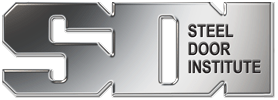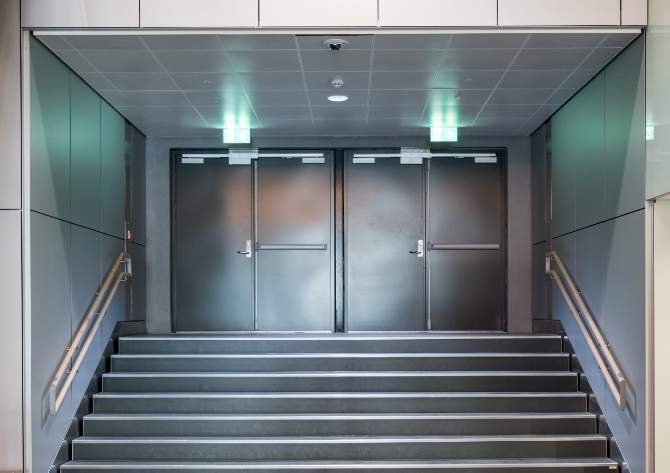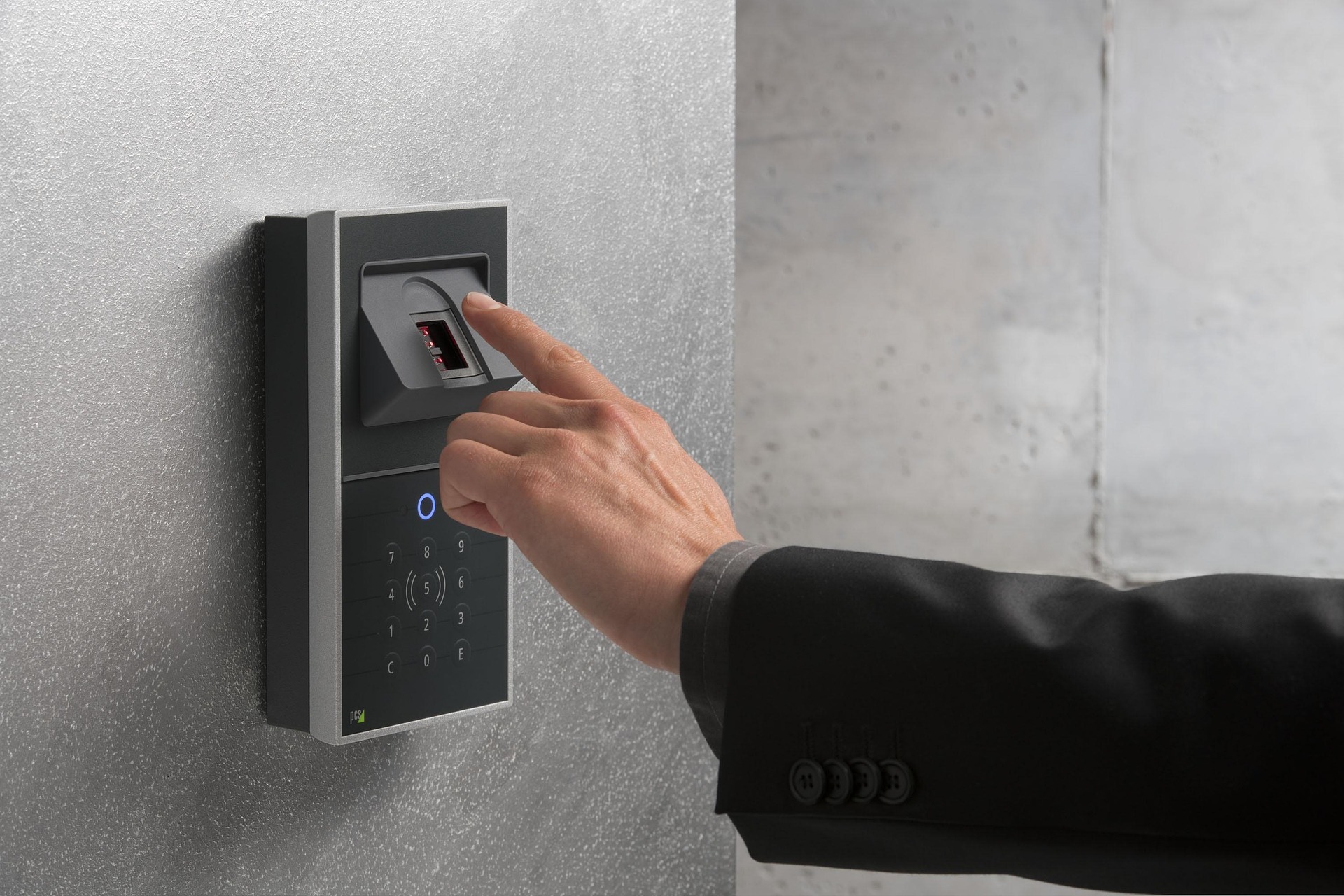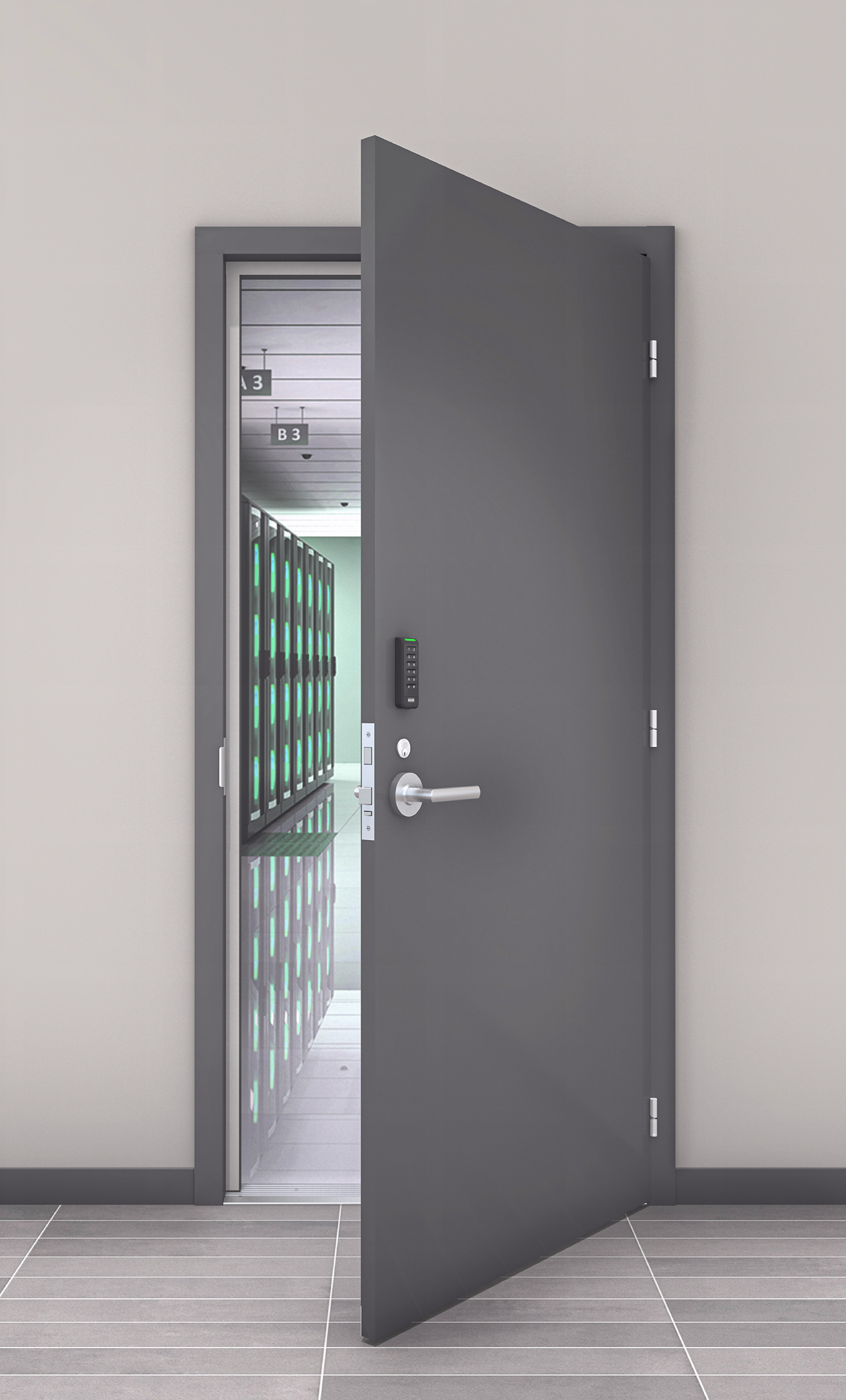Steel Doors & Frames for
Data Centers
As the demand for secure digital infrastructure continues to grow, data centers have become one of the most vital building types in commercial construction. These facilities store, process, and distribute the information that powers every industry – from banking and healthcare to logistics and government. While cybersecurity gets much of the attention, physical security is just as essential to a data center’s performance and risk profile. However, one vulnerable access point can expose entire networks to damage, theft, or downtime. For architects and specifiers, this makes the selection of doors, frames, and hardware a high-impact decision. Steel doors and frames used for data centers are uniquely equipped to meet the challenges and regulatory demands of these specialized environments.
Why Physical Security Matters
There are over 5,000 data centers in the U.S., housing sensitive equipment and storing petabytes of critical data. These facilities are designed to resist cyber threats, but the physical shell of the building, including its door openings, must be equally robust.
Data centers face a wide range of physical security threats:
✔ Unauthorized personnel gaining access
✔ Theft or tampering with IT equipment
✔ Environmental damage from fire, wind, or flooding
✔ Compliance failures tied to outdated or insufficient hardware
One compromised entrance can lead to millions of dollars in damages, downtime, and legal risk. That’s why high-performance steel doors and frames are a common choice for mission-critical infrastructure.
Common Door & Frame Challenges in Data Centers
Designing for performance goes beyond specifying a durable material. Architects must additionally consider how each door and frame will support the facility’s overall goals:
1. Access Control Integration
Data centers rely on strict access control protocols, often using biometric, RFID, or multi-factor authentication systems. Door openings must be compatible with:
- Electrified hardware
- Credential readers and monitoring devices
- Fail-safe or fail-secure locks depending on fire and egress requirements
Steel doors and frames are ideal for these systems due to their structural strength and ability to integrate complex electronic access control components.
2. Security & Forced Entry Resistance
Steel doors are inherently stronger than other materials, offering better protection against forced entry or vandalism. For instance, they are often selected for:
- Server room entrances
- Electrical or mechanical rooms
- Exterior access points
Options include reinforced cores, unique or specialty hardware preps, and attack-resistant certifications for sensitive areas.
3. Fire & Life Safety Compliance
Data centers must meet stringent code requirements, including those from NFPA, IBC, and local jurisdictions. They are filled with electrical equipment, which can increase the risk of fire. Fortunately, steel doors offer excellent fire ratings (up to 3 hours) and also provide:
- Reliable compartmentalization
- Smoke control and containment
- Tested performance under extreme conditions
Most importantly, this ensures compliance while helping facilities minimize risk in emergencies without compromising uptime.
Steel Door Performance Features for Data Centers
Equally important, steel doors for data centers are highly customizable. Steel doors and frames offer a range of features that make them uniquely suited to the challenges of data center environments.
Custom Configurations
Not all spaces are standard. Steel doors can be manufactured to custom sizes and shapes and accommodate unique hardware combinations. This is essential for unusual room layouts, high-clearance equipment zones, and specialized airflow or acoustic requirements.
Environmental Controls
Server performance depends on tightly managed humidity, temperature, and cooling. Steel doors can support various air-sealed gasketing systems and thermal breaks for improved energy efficient performance with minimal warping or distortion over time. These features, in turn, help preserve the integrity of HVAC systems while supporting operational efficiency.
Noise & EMI Shielding
In co-located or urban data centers, acoustic and electromagnetic interference (EMI) risks are common. Steel doors can be manufactured as STC-rated to reduce sound transmission or with shielding options to help minimize EMI from adjacent environments. In addition, they can also be outfitted with seals and cores designed for performance in high-density IT zones. These features provide a better environment for both equipment and personnel.
Modular & Scalable Solutions
Future growth of a data center is typically considered in the early design phase. Many facilities are designed with future expansion or retrofits in mind. Steel door systems can be delivered in custom sizes and profiles, with welded or knock-down frames, or pre-wired frames for electronic hardware. This scalability ensures that doors and frames can evolve with the facility, in turn reducing future costs and disruptions.
Sustainability & Long-Term Value
Though highly specialized, data centers are still subject to sustainability expectations in both public and private sectors. Steel doors and frames support these goals by incorporating recycled materials, offering enhanced thermal insulation options, and contributing to LEED certification and other green building initiatives. Their durability also results in long lifespans with minimal maintenance or replacement. Therefore, in facilities where long-term operating costs are under constant scrutiny, steel delivers both economic and environmental value.
Considerations for Architects & Specifiers
When selecting door and frame components for a data center project, consider the following:
What level of physical security is required for each opening?
Server rooms vs. admin offices will have different needs.
What access control systems are being used?
Ensure compatibility with locking hardware and monitoring.
Are there code-required fire ratings or egress needs?
Fire-rated steel doors are essential in compartmentalized designs.
Is the center located in a hurricane or tornado zone?
Consult state and local code requirements to ensure proper compliance.
What’s the long-term plan for growth or retrofitting?
Select doors and frames that can adapt with the building.
The right steel door solution can reduce risk, simplify compliance, and contribute to a data center’s operational efficiency and success from day one.
The Bottom Line
In data center construction, every detail matters, including the doors and frames. Ultimately, steel doors for data centers provide unmatched performance in security, fire resistance, durability, and environmental control.
Steel doors offer the strength, adaptability, and performance needed to protect critical systems and support uptime. By addressing physical security at the design stage, architects and specifiers can improve operational resilience, meet compliance demands, and reduce total cost of ownership.
When it comes to safeguarding the infrastructure behind the internet, cloud services, and digital commerce — steel is the standard.
For guidance on specifying steel doors and frames for data centers or other secure facilities, consult industry codes and standards and trusted SDI Certified manufacturers.




